- Administrator
- Albums and Singles
 It's difficult to believe that The Clientele have only gotten around to releasing a full length album now, six years after they appeared on the Fierce Panda 7" compilation, Cry Me a Liver. Although the London-based trio have released a steady stream of 7" singles, EPs, and even a critically acclaimed singles compilation in 2000, The Violet Hour finds the band exploring a larger framework and expanding their sound. Overall, the production sounds more focused than their previous efforts, though it does retain much of the charming muddiness of some of their earliest releases such as "All the Dust and Glass."
It's difficult to believe that The Clientele have only gotten around to releasing a full length album now, six years after they appeared on the Fierce Panda 7" compilation, Cry Me a Liver. Although the London-based trio have released a steady stream of 7" singles, EPs, and even a critically acclaimed singles compilation in 2000, The Violet Hour finds the band exploring a larger framework and expanding their sound. Overall, the production sounds more focused than their previous efforts, though it does retain much of the charming muddiness of some of their earliest releases such as "All the Dust and Glass."
 
The guitar work, for which The Clientele claims a signature sound, is also as warm and complex as ever, while the feather-soft percussion drifts along in the background. Aesthetically, the emphasis on time and minutiae is intact. Longtime fans of the band have no doubt noticed The Clientele's affinity for referring to seasons, days of the week, and times of the day in their lyrics. The Violet Hour continues in this tradition. "House on Fire," the second single from the album, certainly ranks among the best of the band's songs, and is a good example of the fullness The Clientele is maturing into. Their previous songs have generally clocked in at around two minutes each, but on this album, the group seem to be gently spreading their wings a bit more, stretching out the length of their newer songs. As a bonus, two videos are included on the disc in a beautifully arranged CD Rom track. The first is for an older, yet classic Clientele tune, "Reflections After Jane," and the second is for "House on Fire." One is tinted and the other is in black and white, but both are images of a suburban London or the band playing cards in a pub, filmed in a similar scratched patina style, slightly out of focus at times, and entirely in keeping with the heart of the band's sound. -
Read More
- Administrator
- Albums and Singles
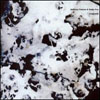 There is a long dark and wet tunnel ahead of me and at its end is apartially opened door with a faint blue glow pulsing from within:something horrible is happening inside and it scares me. I walk forwardcautiously and peer inside and then each of my senses is assaulted tothe point of death. I am left with only my hearing and tactile sensesto manouevre a large and very dangerous habitat. The dry wheezes ofbroken machinery, the incoherent babble of hyper morons, and the soundof a thousand tiny legs echo and rebound all about me. Distant moansdart down long corridors and bring messages of pain and incomingmisanthropy. There is some shelter, some spaces to breathe in withoutfear of being heard by whatever it is that's out there. Pacifying bellsflow somewhere in the distance and the gentle hum of computers becomesa lullaby for my weary head. Hell is still out there somewhere, though.Before long screams demolish the walls and send chills down my spine.No matter where I run these sounds follow me. My hands press againstthe cold and metallic walls hoping to find some familiar nook or somesemblance of home. There's nothing here that I recognize. This is anutterly alien world. Eventually I fall asleep and those same soundshaunt my dreams only they are perverted. Everything has slowed downwith only momentary stabs of pain. The sound of water dripping to thefloor wakes me and I bathe in it happily: here finally is some relief.I lay back and drift in the clear blue water staring at the sun andwonder to myself: did I ever wake up from that dream? Was I ever evenawake at all?
There is a long dark and wet tunnel ahead of me and at its end is apartially opened door with a faint blue glow pulsing from within:something horrible is happening inside and it scares me. I walk forwardcautiously and peer inside and then each of my senses is assaulted tothe point of death. I am left with only my hearing and tactile sensesto manouevre a large and very dangerous habitat. The dry wheezes ofbroken machinery, the incoherent babble of hyper morons, and the soundof a thousand tiny legs echo and rebound all about me. Distant moansdart down long corridors and bring messages of pain and incomingmisanthropy. There is some shelter, some spaces to breathe in withoutfear of being heard by whatever it is that's out there. Pacifying bellsflow somewhere in the distance and the gentle hum of computers becomesa lullaby for my weary head. Hell is still out there somewhere, though.Before long screams demolish the walls and send chills down my spine.No matter where I run these sounds follow me. My hands press againstthe cold and metallic walls hoping to find some familiar nook or somesemblance of home. There's nothing here that I recognize. This is anutterly alien world. Eventually I fall asleep and those same soundshaunt my dreams only they are perverted. Everything has slowed downwith only momentary stabs of pain. The sound of water dripping to thefloor wakes me and I bathe in it happily: here finally is some relief.I lay back and drift in the clear blue water staring at the sun andwonder to myself: did I ever wake up from that dream? Was I ever evenawake at all? Read More
- Administrator
- Albums and Singles
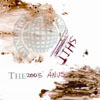 As featured on NPR, Australian Luke Collision, a.k.a. Dsico is comingforth as being one of the stars of the mash-up. His label, Spasticatedhas issued this: a parody wrapped in irony and threatened by a lawsuit.Released in a limited quantity of 500, all the contributors to Ministry of Shit are probably well aware that mash-ups are becoming a trendy thing to do, however, cleverly masked as a dreadful Ministry of Sound compilation, it's easy to forgive them for making a mockery of a larger, even more obnoxious trend. For those fans of The Best Bootlegs in The World,this is a brand new compilation to go on the shelf. Contained hereinare plenty of all-new illegal remixes of Eminem, Madonna, JustinTimberlake and other pop icons. Some are clever and frighteningmutations (yes, it's possible to make Avril Lavigne's voice evenworse!) while many others like Dsico's "I R*cked Britney," are modernremixes. (I wish I knew where Toecutter's "Shit on Me" actually camefrom - it's got far more sex than the entire Nymphomatriarch releaseand if it weren't for the FCC, I'd be playing this song on my radioshow all the time.) AC/3P's "Oi," on the other hand is just a downrightgratuitous, revolting cover with unbearable vocals. Luckily there'splenty of variety on the compilation to not make this sound like thesame track over and over again. The disc closes much like apull-my-finger fart joke that actually is funny every time (I keepthinking of a South Park episode from this year), and with the piggyreference, "Ice Ice Bacon" can only be Stockport's finest V/Vm crew(come on, the artist name is Trotters). My hope is that this compactually finds its way into peoples hands by grotesque mistake (sorecord store clerks, look for it and strategically shove it in thewrong place). With any luck, something like this can potentially openthe eyes of consumers looking to get a moronic dance fix; findsomething this amusing, stupid, and clever; and leave the regular shitbehind. As a bonus, a crafty remixed video of Dsico's "I R*cked Britney(Moonwalk Style)" (combining the white guy who thinks he's black withthe black guy who thinks he's white) is included in the data portion ofthe CD.
As featured on NPR, Australian Luke Collision, a.k.a. Dsico is comingforth as being one of the stars of the mash-up. His label, Spasticatedhas issued this: a parody wrapped in irony and threatened by a lawsuit.Released in a limited quantity of 500, all the contributors to Ministry of Shit are probably well aware that mash-ups are becoming a trendy thing to do, however, cleverly masked as a dreadful Ministry of Sound compilation, it's easy to forgive them for making a mockery of a larger, even more obnoxious trend. For those fans of The Best Bootlegs in The World,this is a brand new compilation to go on the shelf. Contained hereinare plenty of all-new illegal remixes of Eminem, Madonna, JustinTimberlake and other pop icons. Some are clever and frighteningmutations (yes, it's possible to make Avril Lavigne's voice evenworse!) while many others like Dsico's "I R*cked Britney," are modernremixes. (I wish I knew where Toecutter's "Shit on Me" actually camefrom - it's got far more sex than the entire Nymphomatriarch releaseand if it weren't for the FCC, I'd be playing this song on my radioshow all the time.) AC/3P's "Oi," on the other hand is just a downrightgratuitous, revolting cover with unbearable vocals. Luckily there'splenty of variety on the compilation to not make this sound like thesame track over and over again. The disc closes much like apull-my-finger fart joke that actually is funny every time (I keepthinking of a South Park episode from this year), and with the piggyreference, "Ice Ice Bacon" can only be Stockport's finest V/Vm crew(come on, the artist name is Trotters). My hope is that this compactually finds its way into peoples hands by grotesque mistake (sorecord store clerks, look for it and strategically shove it in thewrong place). With any luck, something like this can potentially openthe eyes of consumers looking to get a moronic dance fix; findsomething this amusing, stupid, and clever; and leave the regular shitbehind. As a bonus, a crafty remixed video of Dsico's "I R*cked Britney(Moonwalk Style)" (combining the white guy who thinks he's black withthe black guy who thinks he's white) is included in the data portion ofthe CD.- Wobbly - Let Me Know
- Toecutter - Shit On Me
- Trotter - Ice Ice Bacon
Read More
- Michael Patrick Brady
- Albums and Singles
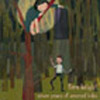 Lullabies and fairy tales can possess certain qualities that belietheir gentle names, and might well inspire sleepless nights as opposedto sweet dreams. The former speak of helpless, cradle-bound babiesfalling to their certain doom, and anyone who has glanced through theoriginal stories of the brothers Grimm knows that their name was arather apt description of their stories' conclusions. It's amazing howa soothing voice or an impeccable melody can assuage the rather irksomefeel of the gothic subject matter. On 'Seven Years of Seven Limbs,'Fern Knight (comprised of ex-Difference Engine members Margie Wienk andMike Corcoran) has given us a collection of their own folktales thatplay with darker shades of storytelling imbued with a fairy tale likesense of wonder. From the outset of "She Who Was So Precious to You,"we find a sparse arrangement of acoustic guitar and strings that arelit up by Wienk's gorgeous vocals, like a shaft of sunlight peekingthrough a dark thicket of dead trees. The lyrics are foreboding andpresents us with the first of many moments of grotesque beauty, "If thefull moon won't illuminate us / if the wine glass won't even stay full/ if the wolf won't eliminate you / then I will." It is a series ofimages so vibrant, so enticingly conveyed that you're pulled in; andyet they are also full of malice. This malevolence is undercut somewhatby a desolate feeling, as in "Chelyabinsk," which gives off a sense ofgreat distance and overwhelming loss that has settled into fear andregret. In "Boxing Day", Wienk dons a red riding hood, declaring "Idon't think it's okay to be going downhill with you" to whoever orwhatever serves as the big bad wolf in her emotional dark forest. Thesong begins with the twang of a slide guitar, however over the courseof its seven minutes, it loses the plot and begins to drift off of itsstructure finally dissolving into a wispy collection of church bells,alarm calls, and telephone ringers before segueing into the rain andstreet noise intro of "Mover Ghost." In the waning minutes of the disc,the metaphor and imagery of the wolves, the dark forests and watchfulmoons begins to fade away in favor of more literal expressions of theconflicts they embodied. "Make your record of it / You're such an easytarget / mark those days off on your wall." The distance is nowmeasured in time, not symbolized by some far off Russian outpost.'Seven Years of Severed Limbs' closes with the stunningly beautiful"Dog Named Summer," loaded full with an impeccable melody and moresoaring vocals that shape the scene of that golden yellow summer sundipping below the rooftops, the heaviness of the heat and the method ofyour movements. Fern Knight draws a slow story, one that makes for anexcellent tale that explores those winding forest paths and the thingsthat lie hidden between the lines
Lullabies and fairy tales can possess certain qualities that belietheir gentle names, and might well inspire sleepless nights as opposedto sweet dreams. The former speak of helpless, cradle-bound babiesfalling to their certain doom, and anyone who has glanced through theoriginal stories of the brothers Grimm knows that their name was arather apt description of their stories' conclusions. It's amazing howa soothing voice or an impeccable melody can assuage the rather irksomefeel of the gothic subject matter. On 'Seven Years of Seven Limbs,'Fern Knight (comprised of ex-Difference Engine members Margie Wienk andMike Corcoran) has given us a collection of their own folktales thatplay with darker shades of storytelling imbued with a fairy tale likesense of wonder. From the outset of "She Who Was So Precious to You,"we find a sparse arrangement of acoustic guitar and strings that arelit up by Wienk's gorgeous vocals, like a shaft of sunlight peekingthrough a dark thicket of dead trees. The lyrics are foreboding andpresents us with the first of many moments of grotesque beauty, "If thefull moon won't illuminate us / if the wine glass won't even stay full/ if the wolf won't eliminate you / then I will." It is a series ofimages so vibrant, so enticingly conveyed that you're pulled in; andyet they are also full of malice. This malevolence is undercut somewhatby a desolate feeling, as in "Chelyabinsk," which gives off a sense ofgreat distance and overwhelming loss that has settled into fear andregret. In "Boxing Day", Wienk dons a red riding hood, declaring "Idon't think it's okay to be going downhill with you" to whoever orwhatever serves as the big bad wolf in her emotional dark forest. Thesong begins with the twang of a slide guitar, however over the courseof its seven minutes, it loses the plot and begins to drift off of itsstructure finally dissolving into a wispy collection of church bells,alarm calls, and telephone ringers before segueing into the rain andstreet noise intro of "Mover Ghost." In the waning minutes of the disc,the metaphor and imagery of the wolves, the dark forests and watchfulmoons begins to fade away in favor of more literal expressions of theconflicts they embodied. "Make your record of it / You're such an easytarget / mark those days off on your wall." The distance is nowmeasured in time, not symbolized by some far off Russian outpost.'Seven Years of Severed Limbs' closes with the stunningly beautiful"Dog Named Summer," loaded full with an impeccable melody and moresoaring vocals that shape the scene of that golden yellow summer sundipping below the rooftops, the heaviness of the heat and the method ofyour movements. Fern Knight draws a slow story, one that makes for anexcellent tale that explores those winding forest paths and the thingsthat lie hidden between the linesRead More
- Administrator
- Albums and Singles
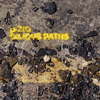 After several years of collaborative and one-off solo projects, Mike Paradinas finally returns to the moniker that he is most recognized for. Threatened to be his final µ-ziq album, Bilious Paths offers 53 thrilling minutes of eclectic electronics, including bits of hardcore, funk, hip-hop, 2-step, rave and, of course, drill n bass.
After several years of collaborative and one-off solo projects, Mike Paradinas finally returns to the moniker that he is most recognized for. Threatened to be his final µ-ziq album, Bilious Paths offers 53 thrilling minutes of eclectic electronics, including bits of hardcore, funk, hip-hop, 2-step, rave and, of course, drill n bass.
Apparently the other artists on his Planet Mu roster have been influential to Paradinas, embedding their essence in this project with highly enjoyable results. The single-worthy "Johnny Mastricht" opens the album with an explosive garage blast that compels the human body to writhe and shake uncontrollably. (That means DANCE.) This is the new "My Red Hot Car," with warped distant voices carrying a sparse melody over the thick bassy mix. "On/Off" combines Prince funk with David Bowie swagger to create the next makeout track for geeks in love. Taking cues from the mash-up and hardcore sampling trends, Paradinas delivers a hip hop gem in "Silk Ties". Here, a sampled MC's old school rhyming plays over a smorgasborg of rhythms, from trippy urban grooves to delerious gabber and breakcore. Like with most eclectic releases, there is always the occasional dud. "Fall Of Antioch," a sleepy but grim interlude, reminds far too much of the orchestral style prevalent on that mixed bag Royal Astronomy. Despite this misstep, the rest of the disc is golden, and surpasses the current output from his contemporaries like Aphex Twin and Autechre considerably. Once again, µ-ziq proves himself as a force to be reckoned with in the IDM scene, and all these pimple-faced bedroom producers should grab this album for a goddamn education. 
Read More
- Administrator
- Albums and Singles
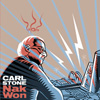 The three songs that compose this full-length present three distinctexperiences: the chaos of the electric world, the sublime glow of theheavenly spheres, and the mayhem of an ever-increasing globalconsciousness. It all begins with sine waves bolting through theatmosphere like a futuristic weapon bent on destroying the moon. Slowlythe tones begin to skip and play musical chairs changing both theirtones and their placement inside my brain. Once inside they wreak havocand expand the auditory receptors in preperation for the fuzzy hazethat nearly rises to the surface. The rhythmic tones bounce manicallyand are somewhat subdued by the calm underneath but eventually everysound returns to its origin and the sound of buzzing electricity is theonly thing left. "Kreutz" permeates every reigion of space with aseries of rolling melodic tones. Closing my eyes I can imagine thefirey birth of a solar system unfolding before my eyes as the variouselements cool and new-born planets revolve peacefully about the sun.This stands in stark contrast to both "Nak Won" and the closing "DarulKabap." Various ethnic instruments open this nearly half-hour longpiece and unfold into a flower of technological and ancestral influencealike. Everything begins gently and slowly with each sound having itsown room to breathe but then a populace of sounds begins to create acrowd and the original instruments become suffocated. Voices replacethe instruments but are struck down by manipulating their tone andlength. The "primitive" and "advanced" meet somewhere in the middle andthen a rhythm is created out of cutting back and forth between the twoin a schizophrenic fury and by introducing some percussive instrumentsinto the mix. Confusion, anxiety, and relief all exist within the pieceand when it's all over I am stunned by the beauty that is found in thisfusion of vocal, acoustic, and electronic influences. Nak Wonis an example of the original and unique things that can still be donewithin the realm of electronic composition and noise. Are the purveyorsof all things glitch out there paying any attention?
The three songs that compose this full-length present three distinctexperiences: the chaos of the electric world, the sublime glow of theheavenly spheres, and the mayhem of an ever-increasing globalconsciousness. It all begins with sine waves bolting through theatmosphere like a futuristic weapon bent on destroying the moon. Slowlythe tones begin to skip and play musical chairs changing both theirtones and their placement inside my brain. Once inside they wreak havocand expand the auditory receptors in preperation for the fuzzy hazethat nearly rises to the surface. The rhythmic tones bounce manicallyand are somewhat subdued by the calm underneath but eventually everysound returns to its origin and the sound of buzzing electricity is theonly thing left. "Kreutz" permeates every reigion of space with aseries of rolling melodic tones. Closing my eyes I can imagine thefirey birth of a solar system unfolding before my eyes as the variouselements cool and new-born planets revolve peacefully about the sun.This stands in stark contrast to both "Nak Won" and the closing "DarulKabap." Various ethnic instruments open this nearly half-hour longpiece and unfold into a flower of technological and ancestral influencealike. Everything begins gently and slowly with each sound having itsown room to breathe but then a populace of sounds begins to create acrowd and the original instruments become suffocated. Voices replacethe instruments but are struck down by manipulating their tone andlength. The "primitive" and "advanced" meet somewhere in the middle andthen a rhythm is created out of cutting back and forth between the twoin a schizophrenic fury and by introducing some percussive instrumentsinto the mix. Confusion, anxiety, and relief all exist within the pieceand when it's all over I am stunned by the beauty that is found in thisfusion of vocal, acoustic, and electronic influences. Nak Wonis an example of the original and unique things that can still be donewithin the realm of electronic composition and noise. Are the purveyorsof all things glitch out there paying any attention?Read More
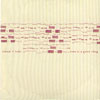 Released back in October 2002, this second release on the City CentreOffices label for the Berlin electronic duo of Bertram Denzel and ErikHuhn layers samples of acoustic instruments with electronic elements ofsynth patches, drum modules and other ambient sounds. The bulk of Time Is A Good Thing'snear sixty minutes are comprised of rhythmic compositional collagesthat convey a relaxed atmosphere without a lot of chord progressionsgoing on to crowd the space being created. The warm, lilting guitarmotifs on "Chicago" are subtly accented with keyboard and anchored byminimal bass to gradually draw in distant drones for a very invitingopening track. "Kinogat" inches along to rhythmic, sampled low-endstatic pops and a single note backbeat while rich synthesizer chordswash over to produce a somewhat melancholic track with an impliedsectional form. The distraction created by the out of place and drawnout "Shaffel" sounds in part to be a mismatch of glitchy rhythmicsamples that continue without any chance of resolving themselves whilelow end rumbles pop up like unwelcomed speed bumps. The tracks beyondthis melee more than make up for it. The whisper of rhythm nailed downby a steady kick drum on "Faller" is played off by sampled,heavy-handed acoustic guitar motifs that through repetition appear tobecome fuller and more intense. On first listen, it may appear thatDenzel + Huhn have grouped together a lot of nice choices for soundsand rhythms to compensate for a lacking sense of traditionalcomposition. However, it does become apparent in the given setting thatthe mixing of the sounds used and the sense of time and placement ofthem are more integral than a lot of melodies and chord progressions.
Released back in October 2002, this second release on the City CentreOffices label for the Berlin electronic duo of Bertram Denzel and ErikHuhn layers samples of acoustic instruments with electronic elements ofsynth patches, drum modules and other ambient sounds. The bulk of Time Is A Good Thing'snear sixty minutes are comprised of rhythmic compositional collagesthat convey a relaxed atmosphere without a lot of chord progressionsgoing on to crowd the space being created. The warm, lilting guitarmotifs on "Chicago" are subtly accented with keyboard and anchored byminimal bass to gradually draw in distant drones for a very invitingopening track. "Kinogat" inches along to rhythmic, sampled low-endstatic pops and a single note backbeat while rich synthesizer chordswash over to produce a somewhat melancholic track with an impliedsectional form. The distraction created by the out of place and drawnout "Shaffel" sounds in part to be a mismatch of glitchy rhythmicsamples that continue without any chance of resolving themselves whilelow end rumbles pop up like unwelcomed speed bumps. The tracks beyondthis melee more than make up for it. The whisper of rhythm nailed downby a steady kick drum on "Faller" is played off by sampled,heavy-handed acoustic guitar motifs that through repetition appear tobecome fuller and more intense. On first listen, it may appear thatDenzel + Huhn have grouped together a lot of nice choices for soundsand rhythms to compensate for a lacking sense of traditionalcomposition. However, it does become apparent in the given setting thatthe mixing of the sounds used and the sense of time and placement ofthem are more integral than a lot of melodies and chord progressions.
- Administrator
- Albums and Singles
 Released back in October 2002, this second release on the City CentreOffices label for the Berlin electronic duo of Bertram Denzel and ErikHuhn layers samples of acoustic instruments with electronic elements ofsynth patches, drum modules and other ambient sounds. The bulk of Time Is A Good Thing'snear sixty minutes are comprised of rhythmic compositional collagesthat convey a relaxed atmosphere without a lot of chord progressionsgoing on to crowd the space being created. The warm, lilting guitarmotifs on "Chicago" are subtly accented with keyboard and anchored byminimal bass to gradually draw in distant drones for a very invitingopening track. "Kinogat" inches along to rhythmic, sampled low-endstatic pops and a single note backbeat while rich synthesizer chordswash over to produce a somewhat melancholic track with an impliedsectional form. The distraction created by the out of place and drawnout "Shaffel" sounds in part to be a mismatch of glitchy rhythmicsamples that continue without any chance of resolving themselves whilelow end rumbles pop up like unwelcomed speed bumps. The tracks beyondthis melee more than make up for it. The whisper of rhythm nailed downby a steady kick drum on "Faller" is played off by sampled,heavy-handed acoustic guitar motifs that through repetition appear tobecome fuller and more intense. On first listen, it may appear thatDenzel + Huhn have grouped together a lot of nice choices for soundsand rhythms to compensate for a lacking sense of traditionalcomposition. However, it does become apparent in the given setting thatthe mixing of the sounds used and the sense of time and placement ofthem are more integral than a lot of melodies and chord progressions.
Released back in October 2002, this second release on the City CentreOffices label for the Berlin electronic duo of Bertram Denzel and ErikHuhn layers samples of acoustic instruments with electronic elements ofsynth patches, drum modules and other ambient sounds. The bulk of Time Is A Good Thing'snear sixty minutes are comprised of rhythmic compositional collagesthat convey a relaxed atmosphere without a lot of chord progressionsgoing on to crowd the space being created. The warm, lilting guitarmotifs on "Chicago" are subtly accented with keyboard and anchored byminimal bass to gradually draw in distant drones for a very invitingopening track. "Kinogat" inches along to rhythmic, sampled low-endstatic pops and a single note backbeat while rich synthesizer chordswash over to produce a somewhat melancholic track with an impliedsectional form. The distraction created by the out of place and drawnout "Shaffel" sounds in part to be a mismatch of glitchy rhythmicsamples that continue without any chance of resolving themselves whilelow end rumbles pop up like unwelcomed speed bumps. The tracks beyondthis melee more than make up for it. The whisper of rhythm nailed downby a steady kick drum on "Faller" is played off by sampled,heavy-handed acoustic guitar motifs that through repetition appear tobecome fuller and more intense. On first listen, it may appear thatDenzel + Huhn have grouped together a lot of nice choices for soundsand rhythms to compensate for a lacking sense of traditionalcomposition. However, it does become apparent in the given setting thatthe mixing of the sounds used and the sense of time and placement ofthem are more integral than a lot of melodies and chord progressions. Read More
- Administrator
- Albums and Singles
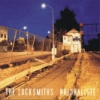 I have sometimes heard The Lucksmiths accused of being too saccharine and while the saccharine charge of the indictment might be indefensible, I would almost certainly take issue with the "too." I would argue that pop such as this would demand a little sweetness, and I submit that The Lucksmiths have found seemingly the perfect amount for their latest album.Drive-In
I have sometimes heard The Lucksmiths accused of being too saccharine and while the saccharine charge of the indictment might be indefensible, I would almost certainly take issue with the "too." I would argue that pop such as this would demand a little sweetness, and I submit that The Lucksmiths have found seemingly the perfect amount for their latest album.Drive-In
The band is from Australia and they exhibit that pleasant pop sensibility shared among other Aussie/New Zealand bands: The Go-Betweens, The Clean, The Bats, and The Chills are some that come to mind, though The Lucksmiths sounds has historically been more spare, with a core of lightly beaten drums, a jangly guitar, and a bass as thick as Koala bear is cute. The first song, "Camera-Shy," is a playful romp through old polaroids and photos which is foremost remarkable for its lyrical wit and literacy, something which can be said of the majority of their songs (it would appear the band actually takes care when constructing lyrics). The guitar line jabs at you like a little cousin begging you to play Chutes and Ladders while the bass dips and swoons almost uncontrollably. Also, I don't think I can name another song which would have the very laudable audacity to use the word "heliolithic." A slower number called "The Sandringham Line" follows. A thumping bass line patiently plods along and the song maintains a constancy until some pleasant female guest vocals take the song by surprise. These first two songs show the archetype of any given Lucksmiths album: you have your fast, upbeat numbers along with your slower, more sombers numbers. By my count, 'Naturaliste' has five upbeat songs and five morose dirges, a nice even split. "But there are eleven songs!" you might exclaim. Well, I will address my arithmetic in a moment. In the meantime, I want you to know that I tend to find the faster songs more compelling as they are more, well, "poppy," for lack of better term (though the last song "Shipwrecked Coast" is truly a gem). Among the notable faster songs, the melody in "Take This Lying Down" is undeniably infectious, while "Midweek Midmorning" has this amazing anthemic horn crescendo at the end which you have to hear to understand. Returning to the matter of the unclassified eleventh song, it falls neatly in the middle of the album as the sixth song called "What You'll Miss" and it is unclassified as either a slow song or a fast song because really it is both. Now I have all types of wild theories and suppositions about the ordering and composition of this album and why "What You'll Miss" falls at the exact midpoint, but I will leave it all aside to tell you how chillingly lovely this fast/slow hybrid song is. Without even trying, it manages to bundle up everything ineffably special about autumn, winter, spring, and summer into one compact pop song, though admittedly the song is solely about winter. I am likely reading far too much into this (again, I might object to the word "too"), but the phenomenon is similar to The Luscksmiths's economy with lyrics: they say a lot with very little.
Read More
- Administrator
- Albums and Singles
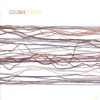 A taste for histrionics may be necessary when listening to the newest music from Alex Paulick and Rob Taylor. Every second of sound is rendered full of nuance and silky ease by way of gentle percussion, wavering melodies, and a deep bass resonance. On top of that is Taylor's voice. It is a voice that immediately reminds of me of lounge act vocalists and jazz crooners howling beneath a deep dark sky lit only by a cloud-veiled moon.
A taste for histrionics may be necessary when listening to the newest music from Alex Paulick and Rob Taylor. Every second of sound is rendered full of nuance and silky ease by way of gentle percussion, wavering melodies, and a deep bass resonance. On top of that is Taylor's voice. It is a voice that immediately reminds of me of lounge act vocalists and jazz crooners howling beneath a deep dark sky lit only by a cloud-veiled moon.
"The Second Closer Still" begins with a beeping rhythm and Taylor singing in a flat-toned voice marked by an incessant and urgent movement. Slowly, other elements are added and by the end violins are momentarily added to achieve a dramatic angle that is only increased by the closing vocals: "They say the first blade shaves you close/The second closer still." It's a promising start and indeed much of the instrumentation on Finery is full and gorgeous but also just a little melodramatic. "You Are Here" and "Summer Clothes" both have just enough cheese in them to make me feel a bit uncomfortable and squeamish. The music would stand well enough on its own. However, Taylor's voice is at the front and center of every song and it sounds just a bit alien in certain places. It's a minor nuisance, but one that builds over time. "The Tailor" and "Green Eyes of the Yellow God" are, on the other hand, brilliantly executed and the vocals (still as dramatic as ever) fit more agreeably with Paulick's arrangements. The former is a violin-led piece drowned in a bit of mystery and a rather sophisticated ether. The latter features a vibraphone and static drum part that skip and hover ambivalently around a keyboard and vocal-centered melody. Much of the second half of Finery sounds better than the first due in part to a more successful blend of the vocals with the instruments. The last few songs are also a bit longer and so everything has more time to develop and play itself out. Coloma's writing is warm and welcoming. Overall they have put together a good collection of dreamy music. Perhaps an instrumental version of the album is in order; the absence of a singer or perhaps a de-empahsizing of the vocals on several of these tracks would have made Finery excellent. 
Read More
- Michael Patrick Brady
- Albums and Singles
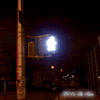 Recorded in a bedroom by three New York artist/musicians, "Young Liars"is the first release from TV On The Radio, and introduces them as afascinating experiment, with a sound that's original and memorable. Themusic groans and creaks beneath the vocals, churning almost, repletewith droning guitars and thudding drums. The percussion is at timesprovided by live drums, or accented with programmed beats, andallegedly sheets of tin. Collages of sampled loops materializemomentarily and then drift away. The most intriguing aspect of "YoungLiars" has to be the vocals, full bodied and soulful, they wouldn'tsound out of place being backed by a funky bass line and horn section,or at the head of some gospel choir like in their acapella rendering ofthe Pixies' "Mr. Grieves." On that hidden track, they sound like awayward choir group, giving the song a great workout that swings as ifit were instead an attack on "Take the A Train." "Satellite" kicks offthe EP with the introduction of this sound, a fuzzy thudding of staticwashed drums and bass with an incessant riff. Then the vocals kick inand it's so unlike the expected, "Now I'm waiting for a signal or asound, where can you be found now? Where can you be, waiting for asignal or a sound?" The song lopes along at a speedy pace, and thelyrics dribble over the beats along with it. "Staring at the Sun" is anabstract love song, a collection of images or glances from up close."Blind" is a slow, creeping track that pulses along as errant noisesappear just above it. The group has a knack for memorable lines thatconnect through their lyrical collections like "My love is a suckerbet." It's a departure from the speed of the first tracks, showing thatthey're capable of producing more methodical atmospheres, and againshowcasing those vocals as they play around in the space left by theinstrumentation. "Young Liars" is an excellent first taste that leavesus to anticipate the upcoming full length
Recorded in a bedroom by three New York artist/musicians, "Young Liars"is the first release from TV On The Radio, and introduces them as afascinating experiment, with a sound that's original and memorable. Themusic groans and creaks beneath the vocals, churning almost, repletewith droning guitars and thudding drums. The percussion is at timesprovided by live drums, or accented with programmed beats, andallegedly sheets of tin. Collages of sampled loops materializemomentarily and then drift away. The most intriguing aspect of "YoungLiars" has to be the vocals, full bodied and soulful, they wouldn'tsound out of place being backed by a funky bass line and horn section,or at the head of some gospel choir like in their acapella rendering ofthe Pixies' "Mr. Grieves." On that hidden track, they sound like awayward choir group, giving the song a great workout that swings as ifit were instead an attack on "Take the A Train." "Satellite" kicks offthe EP with the introduction of this sound, a fuzzy thudding of staticwashed drums and bass with an incessant riff. Then the vocals kick inand it's so unlike the expected, "Now I'm waiting for a signal or asound, where can you be found now? Where can you be, waiting for asignal or a sound?" The song lopes along at a speedy pace, and thelyrics dribble over the beats along with it. "Staring at the Sun" is anabstract love song, a collection of images or glances from up close."Blind" is a slow, creeping track that pulses along as errant noisesappear just above it. The group has a knack for memorable lines thatconnect through their lyrical collections like "My love is a suckerbet." It's a departure from the speed of the first tracks, showing thatthey're capable of producing more methodical atmospheres, and againshowcasing those vocals as they play around in the space left by theinstrumentation. "Young Liars" is an excellent first taste that leavesus to anticipate the upcoming full lengthRead More

